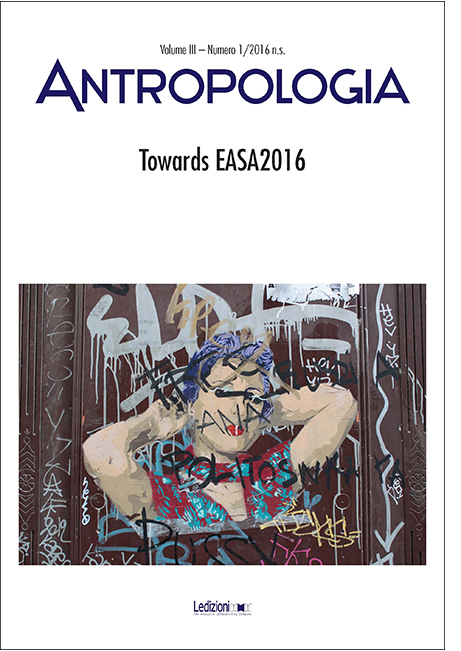Work Inequalities between Global Transformation and Local Embedment. The Case of FIAT-Chrysler and the New Course at Melfi’s Factory
DOI:
https://doi.org/10.14672/ada2016435%25pParole chiave:
Work, Metalworkers, Global/Local, EthnographyAbstract
Starting from an ethnographic longitudinal study on the Fiat-Sata Factory in Melfi (Italy - PZ), this paper focuses on the local change of production and work, due to the recent transformation of Fiat into the Fiat-Chrysler global enterprise (D’Aloisio 2003; 2014). The sense and the value of work for the local workers in the new global scene, where Melfi is now situated, with the unavoidable entailed changes, represent a relevant anthropological issue. Indeed, new (and old) inequalities need to be discussed: the local reduction of the production (from 2011 to 2014 with resort to income assistance) and then the recent organizational change, both comprised into the neoliberal processes of global transformation (of work and market) that increase insecurity and faster changes in the workers’ life. This led us to question ourselves on the new role of classes (if we can use this term yet), and their re-configuration within a new geography of jobs (Moretti 2012, Marsh 2012), time after time established by different economic processes in different locations (based on new indicators and resources).From the perspective of industrial anthropology (Selim 1991, Papa 1999, Mollona De Neve Parry 2009), we can analyze some local characteristics (such as the role of trade unions, the strong attachment to the work, the strong disposition to the sacrifices), and the livelihood strategies (Narotzky 1997), which have been able to contribute to and support the new production, to constitute new possible attractors and maintain the local site in the
##submission.downloads##
Pubblicato
2016-03-23
Fascicolo
Sezione
Articoli
Licenza
- Gli autori mantengono i diritti sulla loro opera e cedono alla rivista il diritto di prima pubblicazione dell'opera, licenziata sotto una Licenza Creative Commons - Attribuzione che permette ad altri di condividere l'opera indicando la paternità intellettuale e la prima pubblicazione su questa rivista.
- Gli autori possono aderire ad altri accordi di licenza non esclusiva per la distribuzione della versione dell'opera pubblicata (es. depositarla in un archivio istituzionale o pubblicarla in una monografia), a patto di indicare che la prima pubblicazione è avvenuta su questa rivista.




